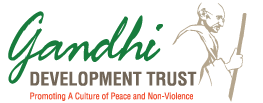Compiled by Indhrannie Pillay
25 November 2007 marks the International Day for the Elimination of Violence Against Women as well as the start to the Sixteen Days of Activism Global Campaign.
In December 1999 the United Nations General Assembly adopted a resolution declaring 25 November as the International Day for the Elimination of Violence Against Women in recognition of the gross violations and abuse of women. The day highlights the magnitude of the problem and the urgent need for the world community to commit to finding solutions.
November 25th is a date symbolically linked to the Mirabal sisters who were activists from the Dominican Republic. In 1960 they were violently assassinated for their political activism. They became known as the 'Unforgettable Butterflies,' highlighting the crisis of violence against women in Latin America. The date was chosen to commemorate their lives and promote global recognition of gender-based violence which had been recognized since the 1980s in Latin America.
The 16 Days of Activism Against Gender Violence was started in 1991 by the Center for Women's Global Leadership (CWGL) at Rutgers University in the United States. The global campaign begins on 25 November and ends on International Human Rights Day on 10 December. International Women Human Rights Defenders Day on 29 November, World AIDS Day on 1 December, and the anniversary of the Montreal Massacre on 6 December were 14 women were killed are also incorporated within the 16 day period, highlighting violence against women, gender inequality and human rights.
Since its inception more than 2000 organizations in 154 countries have participated in the campaign, aimed at raising a voice against the violation of women’s rights and encouraging behavioural change in offenders. During the sixteen day period various programmes are held to generate an increased awareness of gender based violence. The campaign is also a tool to mobilise communities in the prevention of violence against women.
South Africa has been observing the campaign since 1998 but has added children to its campaignto highlight the escalation of child abuse in the country. South Africa still has the highest incidence of violence against its women and children, despite having a Constitution and a legislative overhaul that safeguard women's rights.
• The 2007 Campaign Theme is “Demanding Implementation, Challenging Obstacles: End Violence Against Women”. Since the introduction of the campaign, much progress made, in addressing the issue of violence against women and children. However, there are still many challenges that hinder the effectiveness of work don by anti-Violence Against Women (VAW) activists and organizations. This year’s 16 Days Campaign is dedicated to overcoming those challenges and obstacles that will end the struggle of VAW.
Challenges and obstacles have been identified by activists in all over the world, including South Africa. Some of the challenges and demands that have been identified are:
• Demanding and securing adequate funding for work against VAW.
• Calling for greater accountability and political commitment from states to prevent and punish all forms of violence against women in practice, not just in words.
• Increasing awareness of the impact of violence against women, including engaging in measures to end it by men and boys.
• Evaluating the impact and effectiveness of work to prevent violence against women.
• Securing the space for advocacy and defending the defenders of women’s human rights in their work to end gender based violence.
The 16 Days Campaign is a continuous fight against the violation of women and children. Violence against women prevents opportunities for women to achieve legal, social, political and economic equality in society. This campaign is a tool to mobilise communities in the prevention and awareness of violence against women.
